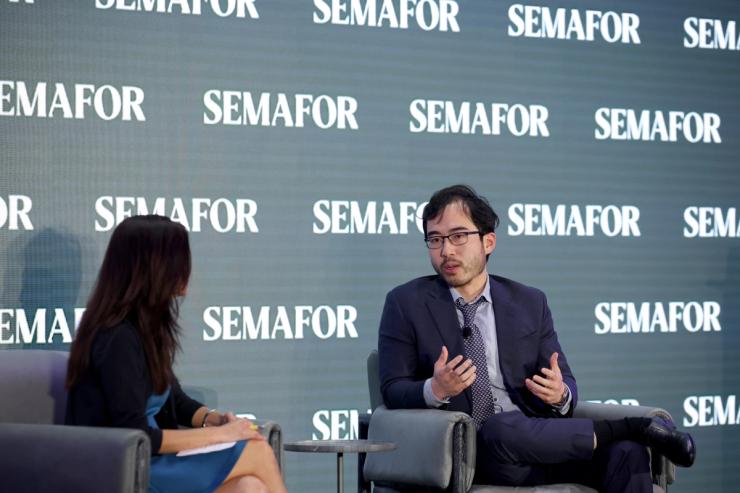The News
AI disinformation and deepfakes are a “global issue that transcends language and culture,” Kevin Guo, the CEO and co-founder of Hive told Semafor’s Gina Chon in an interview Thursday.
Speaking at Semafor’s World Economy Summit in Washington, DC, Guo stressed that “This is a serious concern” for every intelligence agency and government, Guo, whose company makes software to detect and label AI-generated content, said.
“You need to be able to trust the authenticity and diversity of the data you’re looking at.”
A single piece of AI-generated content can cause market crashes or other harmful consequences, Guo said, referring to an AI-made image falsely showing an explosion at the Pentagon posted in 2023 that caused a stock market blip.
“I think this is one of the cases where more regulation is certainly needed and helpful,” he said, pointing to Singapore, which recently passed a bill banning all political deepfakes.
Guo praised legislation in the UK and Europe aimed at limiting AI content, something the US has lagged on by comparison. Nonetheless, the legislation so far is not “hard coded” for how pervasive fake AI content will become, he said.
Know More
The “unfortunate” reality, Guo said, is that detection of AI-generated content will become nearly impossible when artificial general intelligence — AI that has the same reasoning capabilities as humans — is released to the public. That’s because “these models will indeed have the full range of human creativity, and they’ll simply be able to create new content that we won’t be able to identify,” he said. However, he predicted such a leap was unlikely in the immediate future.
The View From

AI and its exponential development are poised to reshape the world. However, AI adoption is progressing unevenly across different regions. BCG is offering Semafor readers an exclusive early look at its forthcoming AI Economic Maturity Matrix, which evaluates the maturity and resilience of 73 global economies.
The matrix combines a country’s exposure to AI with its readiness to handle AI disruption, measured across six dimensions that make up BCG’s ASPIRE index: Ambition; Skills; Policy & Regulations; Investment; Research & Innovation; and Ecosystem.
This matrix provides a broad view of global adoption: Overall, 70% of economies are underprepared for AI disruption — with broad repercussions for competition, growth, investment, and workforces. Most economies are gradually engaging AI, and a small yet influential group of AI pioneers has firmly established itself as global leaders. While many countries have an adequate balance of exposure and readiness, some highly exposed countries are less prepared, leaving them vulnerable to disruption and unable to tap into the full potential of AI or mitigate potential economic risks.
Explore The AI Economic Maturity Matrix when we launch our full report on November 20. To receive a copy of the report, please sign up at PublicSectorEvents@bcg.com.


